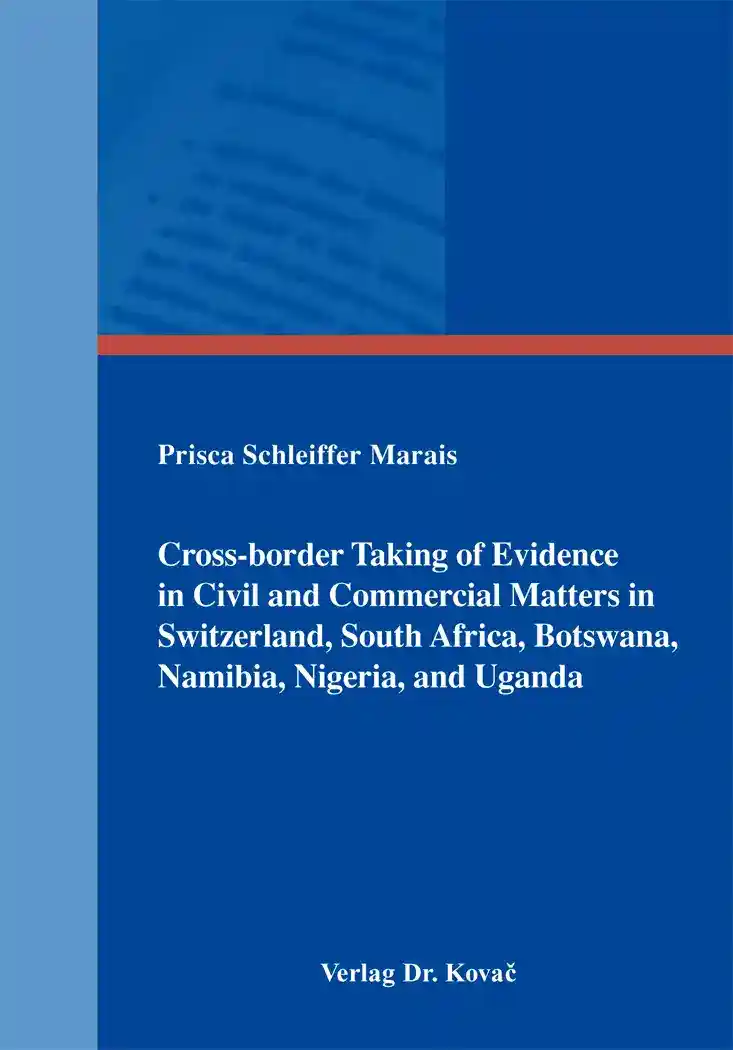Prisca Schleiffer MaraisCross-border Taking of Evidence in Civil and Commercial Matters in Switzerland, South Africa, Botswana, Namibia, Nigeria, and Uganda
Schriften zum Zivilprozessrecht, Band 37
Hamburg 2014, 454 Seiten
ISBN 978-3-8300-7647-6 (Print)
ISBN 978-3-339-07647-2 (eBook)
Zum Inhalt
The book investigates the extent to which cross-border taking of evidence in civil and commercial matters in relation to Switzerland, South Africa, Botswana, Namibia, Nigeria, and Uganda is allowed. Such evidence-taking is not only governed by the domestic law of the state seeking evidence abroad and that of the state where the relevant means of proof are located, but also by public international law, and more specifically by the concept of sovereignty. The admissibility of the cross-border taking of evidence under public international law depends on whether or not evidence-gathering in civil litigation is regarded as a judicial act, which violates sovereignty when performed on foreign territory, or as a purely private act. In the first case, the evidentiary material has to be obtained through channels of international judicial assistance. Such assistance can either be rendered based on the basis of an international treaty, or through courtoisie internationale. No international judicial assistance is necessary in cases of a so-called “transfer of foreign evidence?, provided no compulsion is applied which infringes the sovereignty of the foreign state.
The book analyses the taking of evidence abroad based on the Hague Evidence Convention, and the Hague Procedure Convention. It further expounds how evidence located in Switzerland, Botswana, Namibia, Nigeria, and Uganda can be obtained for the benefit of civil proceedings pending abroad in the absence of any relevant international treaty. The work also examines under what conditions a litigant in civil proceedings in the aforementioned countries may request evidence to be taken on foreign soil. The position of cross-border taking of evidence in civil and commercial matters in the said countries is assessed, and suggestions are made on how such status quo may be improved. The study makes an attempt to establish the basic principles for a convention on evidence-taking in civil and commercial matters between South Africa, Botswana, Namibia, Nigeria, and Uganda. The development of such principles, however, is only possible once the similarities and differences in the procedure for the taking of evidence and the means of proof in the relevant laws of the aforesaid countries have been identified.
